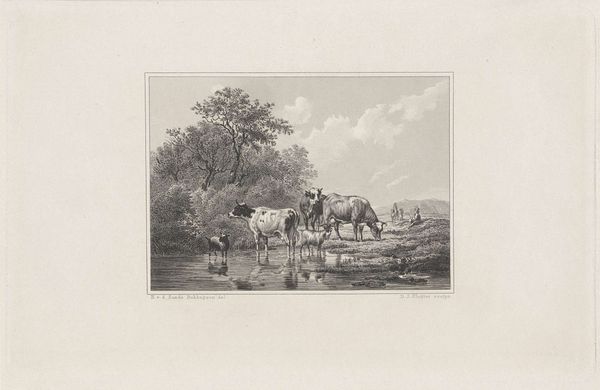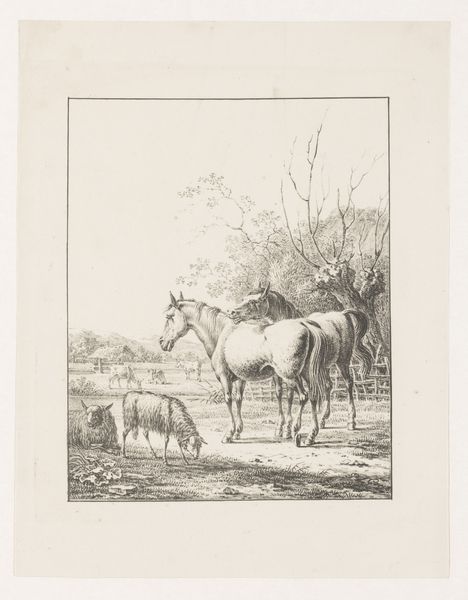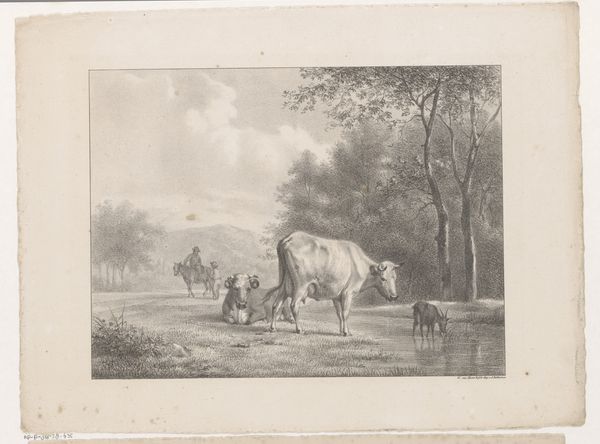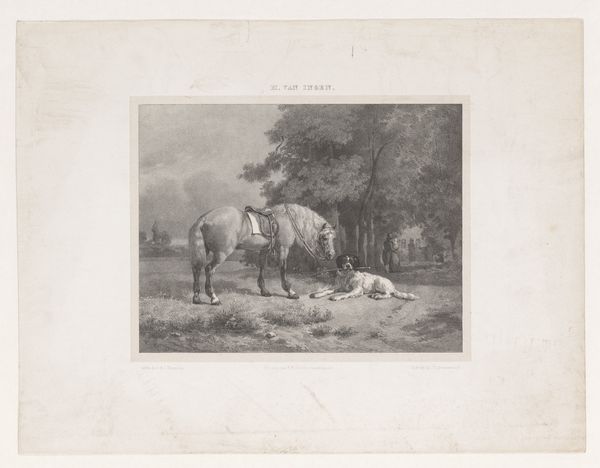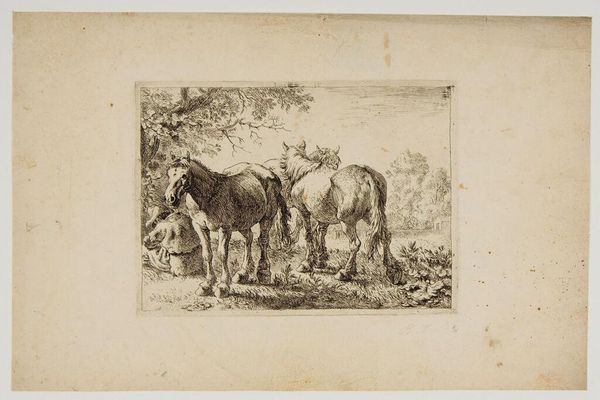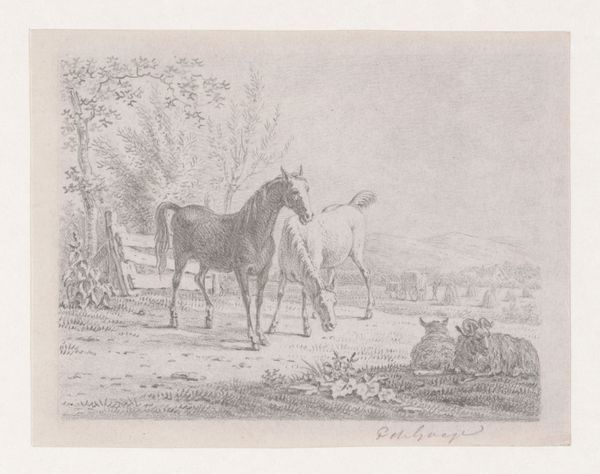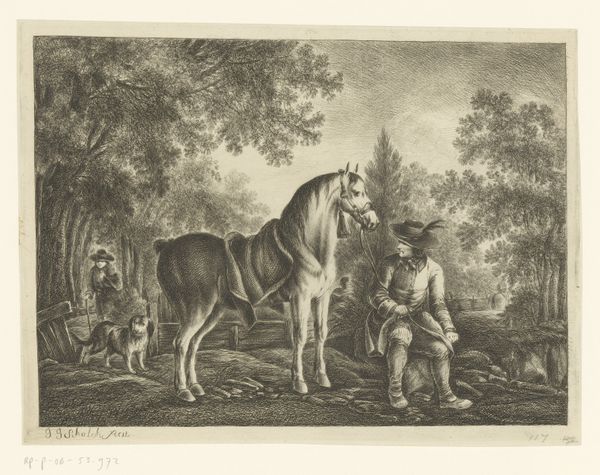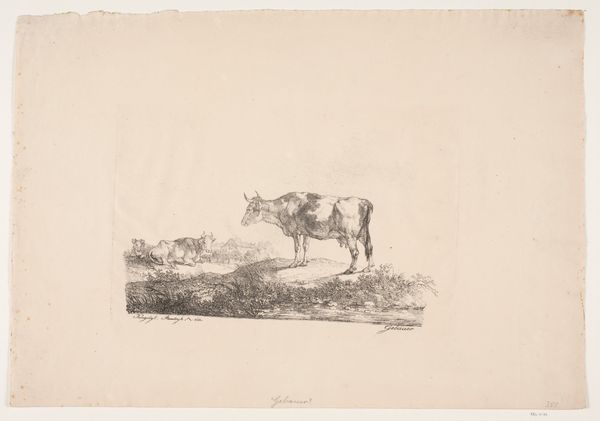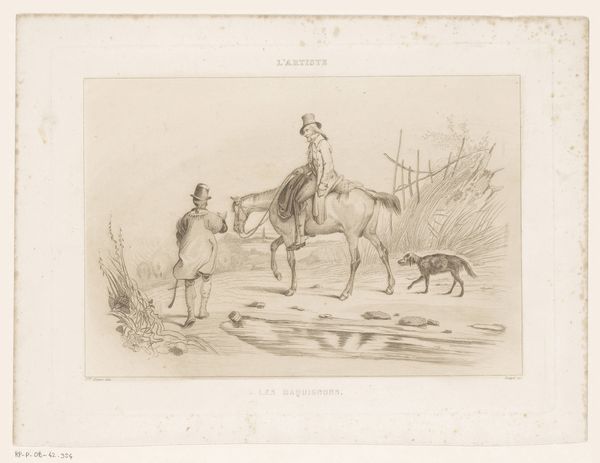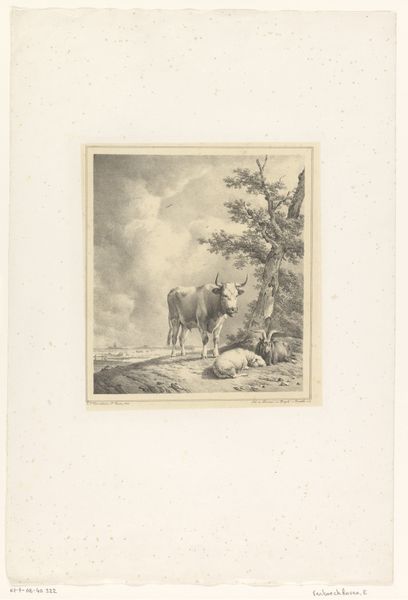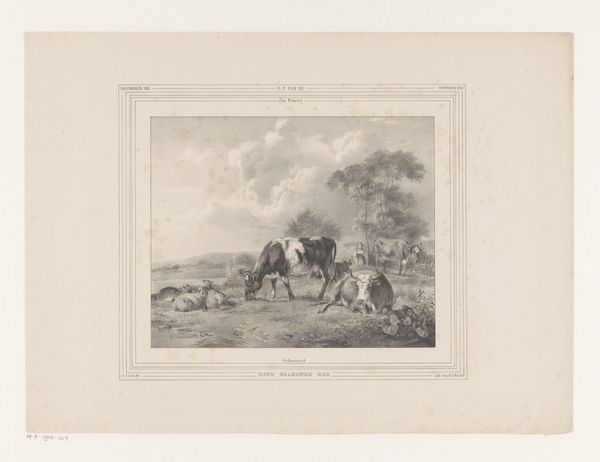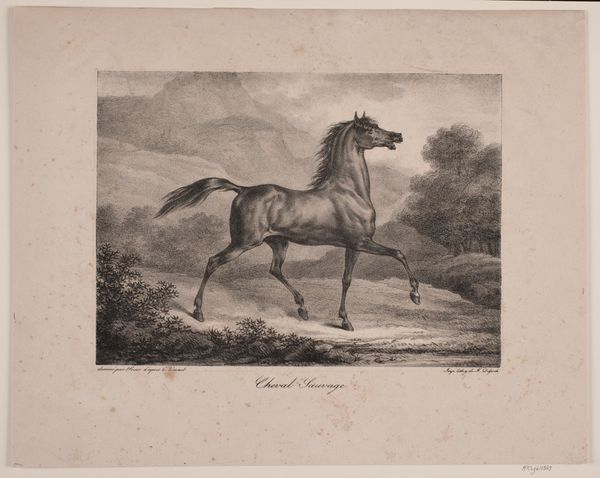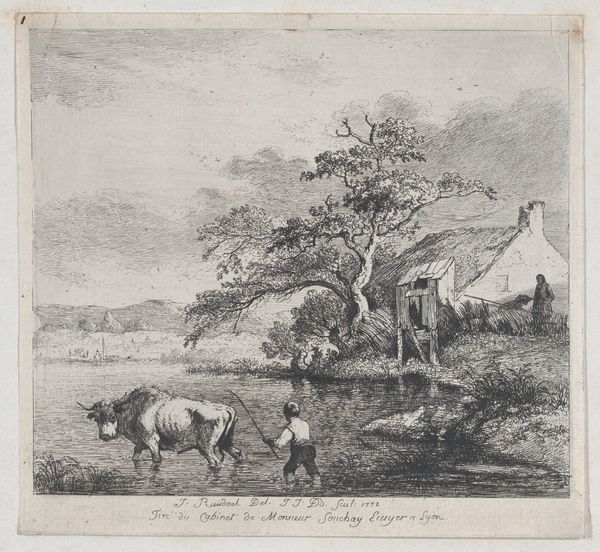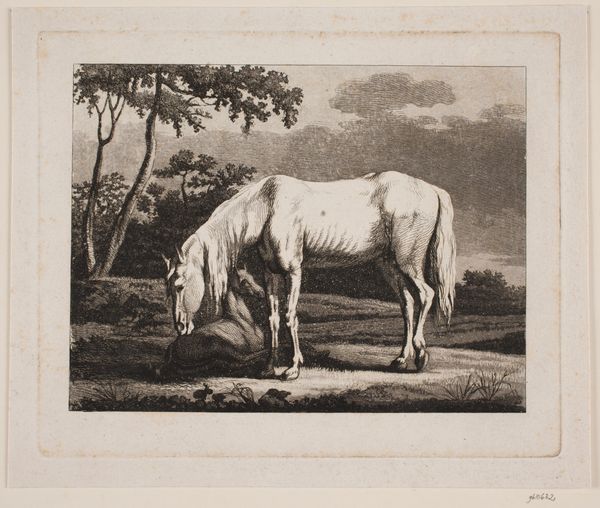
drawing, engraving
#
drawing
#
animal
#
old engraving style
#
landscape
#
horse
#
line
#
genre-painting
#
engraving
#
realism
Dimensions: height 150 mm, width 190 mm
Copyright: Rijks Museum: Open Domain
Curator: The artwork before us is by Pieter de Goeje, entitled "Two Horses and Two Sheep in a Meadow," made sometime between 1809 and 1859, utilizing engraving techniques. Editor: It's rather charming, in a bucolic way. The light feels even across the whole scene and makes all the objects present, if a little static, like figures in a family portrait. Curator: Indeed. De Goeje operated during a time of significant agricultural and social change in the Netherlands. Genre paintings and animal depictions rose in popularity, reflecting a fascination with rural life amid increasing urbanization. This piece captures the idyllic vision that the urban populations might have regarding rural living. Editor: You can really see how he utilizes line to create form and texture. Notice the intricate details in the foliage versus the smoother treatment of the animals, achieving tonal variety despite the limitations of engraving. I’m struck by the way the two horizontal bands of foreground and background compress the animal figures in the midground. Curator: The work definitely speaks to an era grappling with shifting identities. Artists found a ready market depicting familiar agrarian settings while subtly reinforcing traditional hierarchies and values. What do you make of the choice of animals? Editor: Horses were potent symbols of both labor and status. The sheep, however, introduce an element of gentleness and pastoral simplicity. Formally, they anchor the lower-left corner with their darker masses, directing the viewer's eye into the composition. Their inclusion transforms a simple pastoral scene into an understated emblem of idealized rural life. Curator: Considering its place in the Dutch artistic canon, it seems likely this piece served as both a record and a subtle promoter of agrarian life, offering viewers a comforting reflection of an era undergoing rapid transformation. Editor: Absolutely. And as a work of line and form, its structured composition provides a glimpse into the artistic concerns of its time, and its attempt to find the perfect harmony within those constraints.
Comments
No comments
Be the first to comment and join the conversation on the ultimate creative platform.
